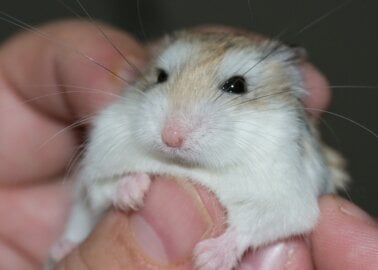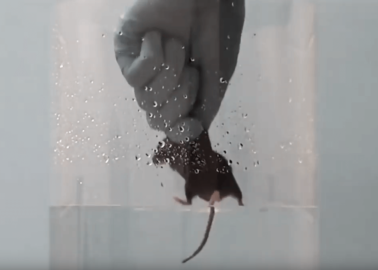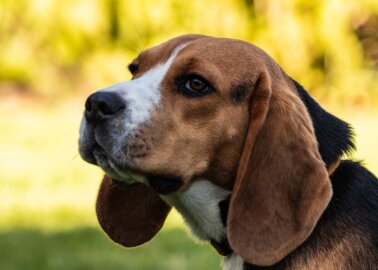Cloning Intensifies Animal Suffering
5 July 2016 marks the 20th anniversary of the birth of Dolly the sheep, the first mammal to be cloned from an adult cell, but this is no time for celebration. Dolly was plagued by health issues, suffering from weight problems, premature arthritis and viral lung cancer. Her misery ended when she was destroyed at age 6 – half the life expectancy of a healthy sheep.
Suffering and premature death are commonly associated with cloning. Animal mothers undergo surgical procedures to harvest their eggs and implant the cloned embryos. The embryo transfer process is known to be so stressful for cows that UK law requires that a general or epidural anaesthetic be administered prior to transfer.
These unnatural pregnancies cause mothers to continue to suffer long after the transfer process is complete. Cloned animals are often heavier than their naturally conceived counterparts, which means the mothers often endure a painful birthing process and require caesarean sections. Mortality rates amongst young cloned animals are extremely high, during both pregnancy and infancy – Dolly was the sole surviving adult from 277 attempts. Cloned animals are also likely to have defective immune systems and to suffer from heart failure, respiratory difficulties and muscle and joint problems.
Cloning animals for food production serves only to intensify suffering for animals. Billions of animals already suffer on today’s factory farms, enduring painful mutilations, castrations, lameness, untreated wounds and the psychological torment of being denied everything that makes life worth living. It is morally reprehensible to use scientific techniques to push these sensitive individuals to their absolute physical limit as farmers seek to produce animals with rapid growth rates and high-yield production.
Thankfully the European Parliament voted last year to ban the cloning of all farmed animals, but the ban must be expanded to cover all animals, including those used for medical experiments, such as mice, monkeys, cats and dogs.
Cloning animals is fraught with problems. Ian Wilmut, one of Dolly’s co-creators, told Time magazine, “Even if you use the same method as consistently as you can, you may get some clones with severe abnormalities and some that have only minor ones”. Many years and hundreds – possibly thousands – of animals later, there has been little improvement in the effectiveness of the technique.
Cloning animals is akin to playing a scientific lottery but with lives. We have no right to inflict torture and pain to test theories. If people were doing this kind of thing in their house, they’d be arrested and charged like the psychopaths we see in crime dramas – wearing a lab coat doesn’t make it any less perverse.
Cloning will not solve medical problems or improve food production, but it will lead to increased suffering for animals. If Dolly has taught us one thing, it is that cloning animals is a technique better off left in sci-fi stories.
Animals, cloned or naturally conceived, are biologically, metabolically and physiologically different to humans. To understand more about human development and human diseases, the world’s most forward-thinking scientists are developing and employing methods, such as sophisticated tests using human cells and tissues, which replicate human physiology more accurately than experiments on animals do. That innovative and humane research is our greatest hope for scientific and ethical advancements. Torturing animals will get us neither.



